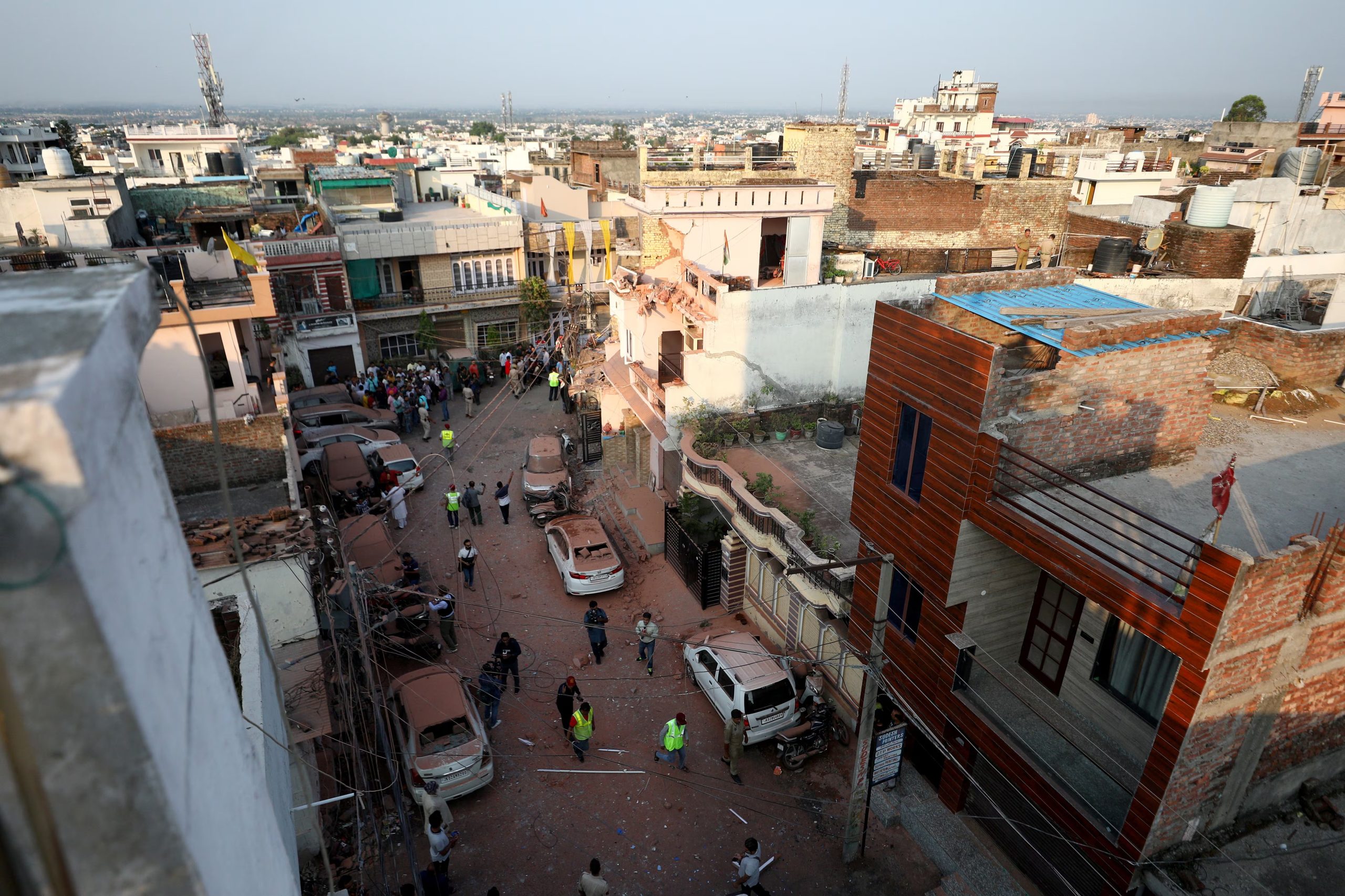Politics
Pakistan Launches Military Strikes on India Amid Rising Tensions

Pakistan announced early Saturday that it had launched a military attack against India. The operation targeted several Indian military sites, including a missile storage facility in northern India. This marks the most serious fighting between the two nuclear-armed neighbors in nearly 30 years.
The military action follows days of rising tensions between the two countries. Both sides have blamed each other for recent airstrikes and cross-border shelling. The latest clashes started on Wednesday when India carried out airstrikes inside Pakistan. India said it was targeting “terrorist infrastructure” responsible for a deadly attack on Hindu pilgrims in Indian-administered Kashmir last month.
Pakistan Targets Military Sites in India
According to Pakistan’s military, Saturday’s offensive hit three main targets. One was a BrahMos missile storage facility near the town of Beas. The other two were the Pathankot Air Force Station in Punjab and the Udhampur Air Base in Jammu and Kashmir.
The Pakistani military named the action Operation Bunyanun Marsoos, which means “a firm, united structure” in Arabic. Pakistan’s information minister shared this on social media platform X.
Pakistan’s planning minister said in a televised statement that the attacks focused only on military sites. He claimed special care was taken to avoid civilian areas. “We targeted places that had earlier been used to strike Pakistan,” he said.
India Yet to Issue Detailed Response
India’s defence and foreign ministries have not released an official statement yet. The Ministry of Defence has, however, informed journalists that a press briefing is expected soon.
Pakistani authorities said that before launching their operation, India fired missiles at three military bases in Pakistan. These included the Nur Khan base near Islamabad, and Mureed and Shorkot bases in Punjab province.
Lieutenant General Ahmed Sharif Chaudhry, a spokesman for Pakistan’s army, said that most Indian missiles were intercepted by Pakistan’s air defence systems. He added that none of the Indian missiles caused damage to aircraft or major military equipment.
Sounds of Explosions Heard in Multiple Cities
The sound of explosions was reported across several cities in both countries. In India, sirens were heard in Srinagar and Jammu. In Pakistan, similar sounds were reported in Lahore and Peshawar. These reports came from local journalists and eyewitnesses.
In Indian-controlled Kashmir, the region’s chief minister Omar Abdullah confirmed that one local official died from shelling near the Line of Control in Rajouri.
Fighting Intensifies Along Border
Since Wednesday, both sides have been using drones, air-to-surface missiles, and heavy shelling. India claimed to have shot down several Pakistani drones that entered its airspace. Meanwhile, Pakistan said that only a few Indian missiles reached their targets and caused no major harm.
Indian military strikes earlier in the week were said to be a response to a bombing that killed Hindu pilgrims in Kashmir. India accused Pakistani-backed groups of carrying out the attack. Pakistan has strongly denied any involvement.
The situation has now grown more dangerous, with heavy fighting along the border and in Kashmir. Casualty numbers are rising. As of Saturday, unofficial sources suggest that at least 48 people have died on both sides. These numbers have not been independently confirmed.
Global Community Calls for Calm
World leaders have urged both India and Pakistan to show restraint. The Group of Seven (G7) nations released a statement on Friday asking both sides to avoid further escalation and to begin direct talks.
The United Kingdom’s High Commissioner to Pakistan, Jane Marriott, said they are closely watching the situation. She posted on X, urging peace and dialogue.
Nuclear Concerns Raise Global Alarm
Pakistan has called an emergency meeting of its National Command Authority (NCA). This body oversees the country’s nuclear weapons program. Experts warn that any escalation could increase the risk of a broader conflict.
Both India and Pakistan are nuclear-armed countries with a history of war and conflict, mainly over the disputed region of Kashmir. The last major military standoff was in 1999 during the Kargil War.
With the recent exchange of missiles, drones, and shelling, the region is on edge. Many are hoping that diplomacy will help stop the violence before it gets worse.






